How to Start a Pickle Business in the USA: Laws, Costs & Selling Tips
Start a profitable pickle business in the USA! Learn about laws, licenses, startup costs, safety rules, and how to sell pickles legally in 2025.
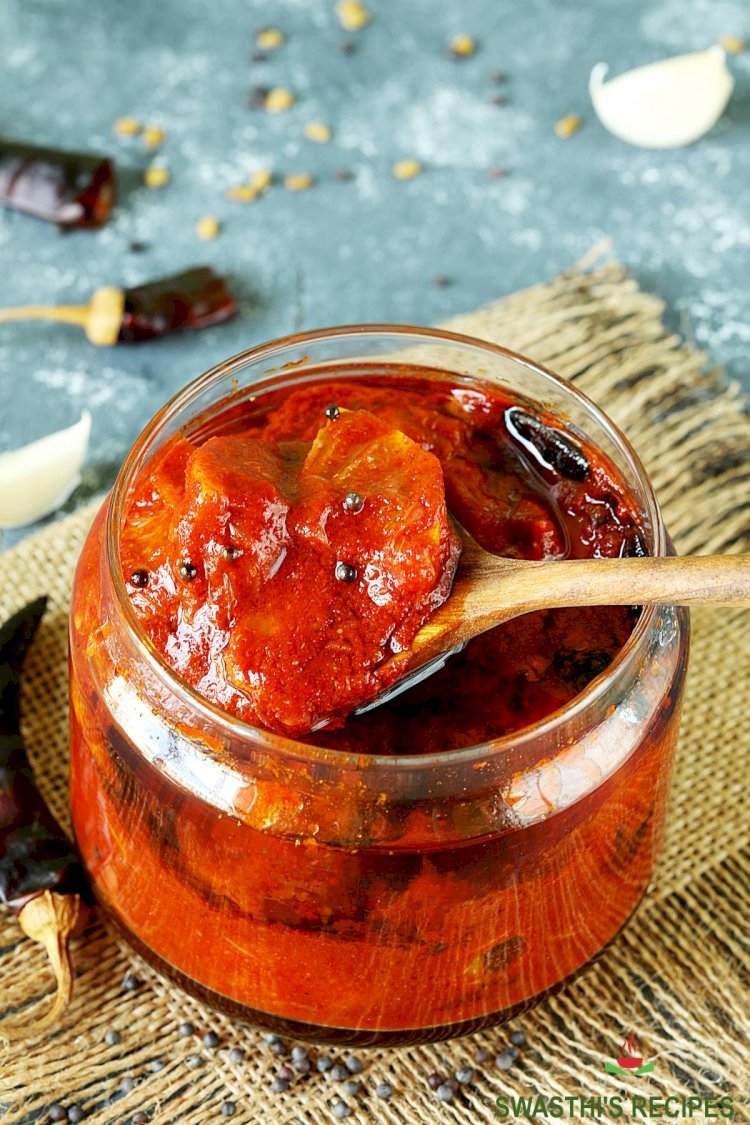
Have you ever looked at your homemade pickles and thought, “I bet people would buy this”? You're not alone. Across the United States, more people are turning hobbies into side businesses—especially in food. According to the USDA and state agriculture departments, thousands of cottage food permits are issued each year, and pickles are among the most commonly approved items. As consumers increasingly seek small-batch, handmade, and local products, demand for home-produced pickled goods is rising fast.
But here’s the challenge: selling pickles in the U.S. isn’t just about having a great recipe. Every state has its own rules on what you can sell from home, how to label your jars, and whether you need FDA approval. So if you're asking, “can I do pickle business in USA?”—the answer is yes, but only if you follow the right steps.
➤ In this article, we’ll guide you through everything you need to know—from local food laws and permits to startup costs, popular sales platforms, and real success stories—so you can confidently turn your pickle passion into a business.
Is It Legal to Start a Pickle Business in the USA?

Image source: foods.shopkruz.com
Yes, you can legally start a pickle business in the USA—but the rules depend on the state you live in. Most states have what's called “cottage food laws”, which allow people to make and sell certain foods from their home kitchens. Vinegar-based pickles are often included in these laws, but not always. Some states restrict which ingredients can be used, where you can sell (like only at farmers markets), or require pH testing to ensure the product is safe.
For example, in California and Texas, you can sell certain types of homemade pickles under their cottage food laws. In New York, however, you may need to use a commercial kitchen even for small-scale production.
To stay compliant, check with your state’s Department of Agriculture or Health Department. You may also need:
- A food handler’s permit
- An annual cottage food license
- Properly labeled jars (with your name, ingredients, and address)
Tip: Not all pickles are treated the same. Vinegar-based pickles are usually allowed, but fermented pickles (like sauerkraut or kimchi) are more strictly regulated and often prohibited under cottage laws.
State-by-State Pickle Business Rules (2025 Overview)

Image source: static.vecteezy.com
Starting a pickle business in the U.S. depends on local regulations. Here’s a simplified guide for four major states. Always confirm with your state’s Department of Agriculture or Cottage Food Law portal for up-to-date details.
|
State |
Home Pickling Allowed |
License/Permit Needed |
Where You Can Sell |
|
California |
Yes, vinegar-based only |
Cottage Food Permit (Class A/B) |
Farmers markets, home deliveries, local events |
|
Texas |
Yes (non-fermented, vinegar-based) |
Cottage Food Law Registration |
Direct to consumer (no online/mail order) |
|
Florida |
Yes (with limits on shelf stability) |
Food Permit + Food Handler Training |
In-person, some limited online (within state) |
|
New York |
Limited – only in commercial kitchens |
Food Processing License |
Retail stores, wholesale, no home kitchens |
Note:
- Fermented pickles (e.g., kimchi, sauerkraut) usually fall outside cottage food laws and often require a commercial kitchen setup.
- Online sales are generally not allowed under cottage food laws unless specified by the state.
Source: Forrager - Cottage Food Laws (2024–2025)
What Licenses and Permits Do You Need?

Image source: www.tailorbrands.com
To legally run a pickle business in the USA, the exact licenses and permits you'll need can vary by state, but here are the most common requirements for home-based and small-scale producers:
- Food Handler’s Certificate – Required in many states to ensure you understand basic food safety practices.
- Cottage Food License – If your state has a cottage food law, this license allows you to prepare and sell certain types of food (like vinegar-based pickles) from your home kitchen without a commercial facility.
- Zoning Approval or Home Occupation Permit – Some local governments require permission to run a business from your residential address.
If you plan to expand your sales beyond your state (such as through a website or shipping products nationally), you may also need to follow federal food safety regulations:
- FDA Registration – Businesses that manufacture, process, pack, or hold food for consumption in the U.S. must register with the U.S. Food and Drug Administration (FDA).
- Process Authority Review – If you're making acidified pickles (like cucumbers in vinegar), the FDA requires that your recipe and process be evaluated by a certified Process Authority to ensure safety and compliance. This is especially important when selling online or wholesale.
For most small food producers, the first step is to check your state's department of agriculture or health department website to understand what’s allowed under cottage food rules and what limitations apply.
FDA Acidified Foods Guidelines
Can I Sell Homemade Pickles at Farmers Markets?
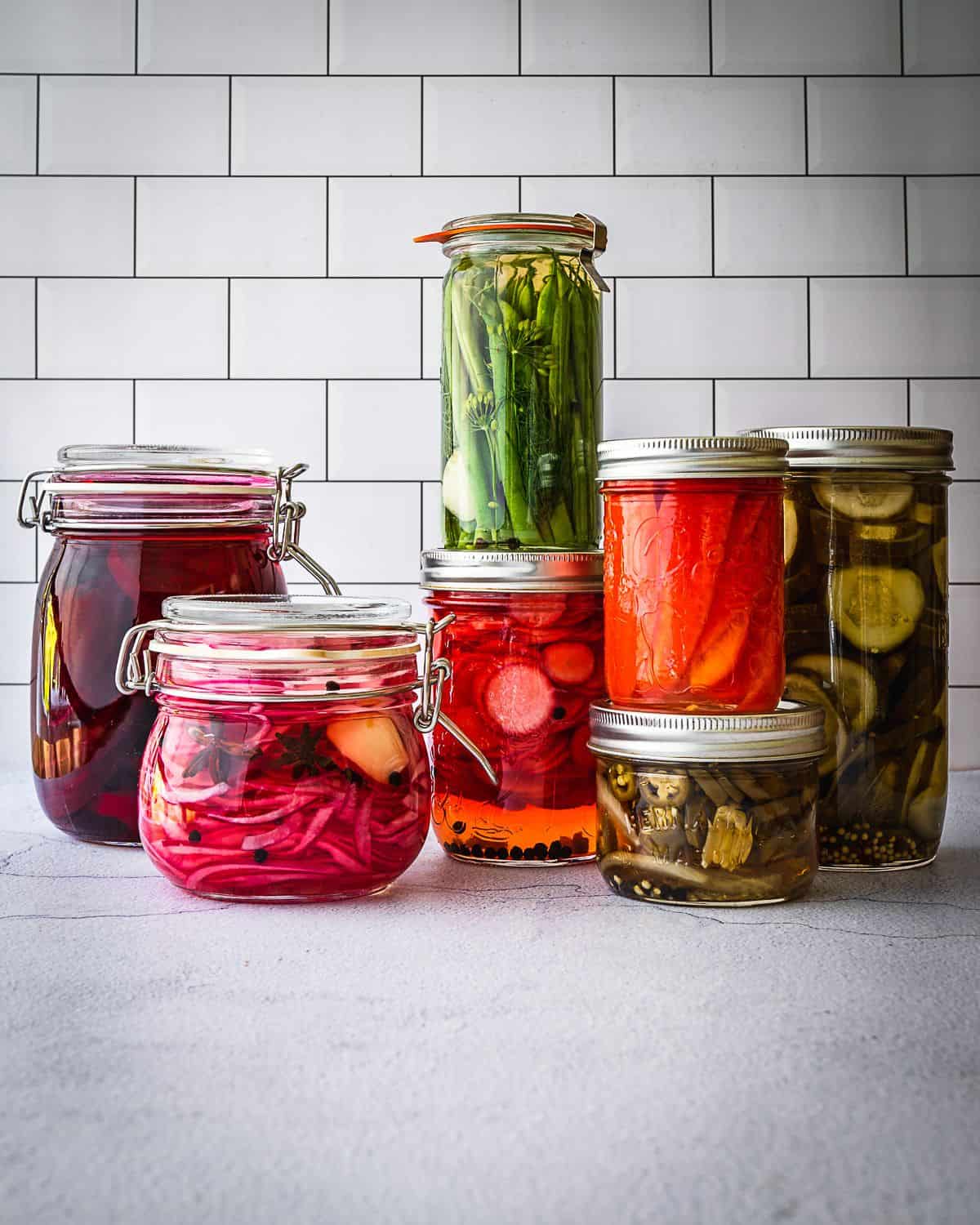
Image source: urbanfarmandkitchen.com
Yes, in many U.S. states, farmers markets are one of the best places to sell homemade pickles—especially for new food entrepreneurs. Most states with cottage food laws allow home-based producers to sell directly to consumers at farmers markets, as long as they follow certain rules.
To sell legally, you typically need:
- A valid cottage food license or registration (if required in your state)
- Proper labeling that includes ingredients, net weight, your name and address, and a statement like “Made in a home kitchen not inspected by the Department of Health” (if required)
- Clean, sealed packaging that meets basic food safety guidelines
Some markets may also require you to carry product liability insurance and apply for a vendor permit. It’s a good idea to speak with the market manager beforehand to understand their specific rules.
Selling at farmers markets can help you get real-time customer feedback, build a local following, and test different flavors. Many successful pickle brands started this way before expanding into retail stores, restaurants, or online sales.
Do I Need a Commercial Kitchen to Start?

Image source: i.pinimg.com
Not always. If your state has cottage food laws that allow vinegar-based pickles, you can usually make and sell them from your home kitchen—no commercial space needed. This is ideal for beginners selling locally at farmers markets or directly to customers.
However, you will need a commercial kitchen if:
- You’re making fermented pickles (which are more complex and may pose safety risks if not handled properly),
- You want to sell online across state lines, or
- You plan to wholesale to stores, cafes, or restaurants.
A commercial kitchen must meet strict health department requirements, including:
- Sanitary food prep surfaces
- Proper sinks for washing and sanitizing
- Food-safe storage areas
- Regular inspections
You don’t have to build your own—many cities offer shared-use or rentable commercial kitchens, perfect for small businesses just starting to grow.
Tip: Check your state’s Department of Agriculture website or local health department to confirm whether your pickle type and business model require a commercial facility.
How Much Does It Cost to Start a Pickle Business?

Image source: a.storyblok.com
The cost of starting a pickle business depends on how big you want to go. If you're launching a small, home-based setup under your state’s cottage food laws, you can usually get started for $500 to $1,800. This would cover the basics—ingredients, jars, labels, a food safety permit, and fees for farmers markets or packaging.
If you're planning a larger operation with a commercial kitchen, professional branding, and online or wholesale sales, expect costs to rise significantly. A commercial setup can easily require $5,000 to $15,000 or more, including kitchen rental, insurance, FDA registration, and scaled-up production tools like pH meters, sealing equipment, and bulk storage.
Start small, test your product, and expand gradually as your profits grow—this reduces risk and keeps you in control.
Estimated Startup Costs for a Home-Based Pickle Business (2025)
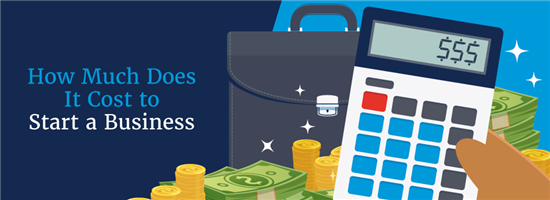
Image source: www.i1.creditdonkey.com
Starting a small pickle business from home is affordable, especially under most U.S. cottage food laws. Below is a realistic breakdown of typical costs you may face in your first month:
|
Expense Category |
Estimated Cost (USD) |
What It Covers |
|
Ingredients & Supplies |
$200 – $500 |
Cucumbers, vinegar, spices, sugar, herbs, salt, gloves |
|
Jars and Packaging |
$150 – $350 |
Mason jars, lids, seals, packing materials |
|
Permits & Licensing |
$75 – $250 |
Food handler certificate, cottage food registration, zoning |
|
Labels & Branding |
$100 – $400 |
Custom labels, logo design, business name registration |
|
Farmers Market Fees |
$50 – $150 per market |
Stall space, vendor registration |
|
Marketing Materials |
$100 – $200 |
Flyers, signs, business cards, basic website or social media |
|
Estimated Total Range |
$675 – $1,850 |
One-time startup estimate for most small-batch businesses |
Source: Compiled from U.S. State Cottage Food Program Fees, Small Business Trends, and Market Vendor Cost Averages (2024–2025)
What Are the Best Pickle Flavors to Sell?
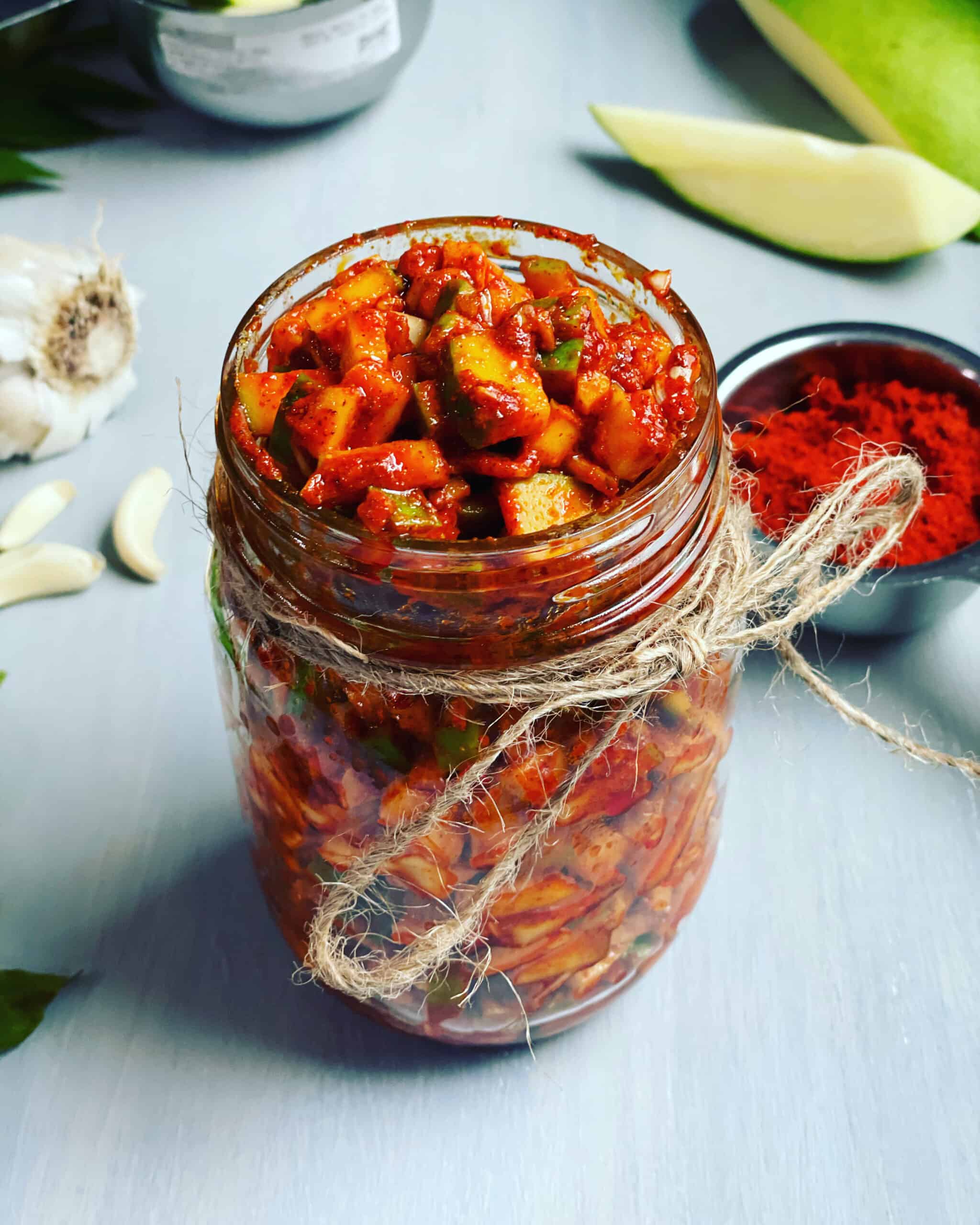
Image source: blissfulbitesbytay.com
When starting your pickle business, choosing the right flavors can make a big difference in attracting and keeping customers. Some of the most popular and best-selling pickle flavors in the U.S. include garlic dill, bread and butter, and spicy jalapeño—these are staples that appeal to a wide audience. For customers looking for something different, you can offer unique options like pickled carrots, green beans, cauliflower, or even okra. There’s also growing interest in premium or gourmet pickles, such as bourbon-infused dill, smoked chipotle pickles, or sweet and spicy habanero blends.
Trends in 2025 also show increased demand for fermented pickles due to their gut health benefits, and low-sodium or organic varieties for health-conscious consumers. The key is to start with 3–5 varieties, offer samples when possible, and keep track of customer preferences to refine your product line.
How to Label Your Pickles Correctly

Image source: i.pinimg.com
Labeling your pickle jars isn't just about branding—it’s a legal requirement that protects both you and your customers. Every jar you sell must follow FDA guidelines and any specific state laws to ensure transparency and safety. Incorrect labeling can result in fines or product recalls, so it’s important to get it right from the start.
Here’s what your pickle jar label should include:
- Product Name – Clearly describe what’s in the jar (e.g., “Spicy Garlic Dill Pickles”).
- Net Weight – Indicate the weight of the contents in ounces and grams (e.g., “Net Wt. 16 oz / 454 g”).
- Ingredient List – List all ingredients in descending order by weight (starting with what’s used the most).
- Business Name & Address – Include your full business name and your street address (as required by the FDA).
- Required Statements – If you’re operating under a cottage food law, many states require a disclaimer such as:
“This product was made in a home kitchen not subject to state inspection.” - Allergen Disclosure – If your product contains common allergens like mustard seed or celery, you must include a statement like:
“Contains: Mustard.”
Pro Tip: Your label should be easy to read, waterproof if possible, and securely attached to the jar. For digital sales, include the label info in your product description.
For detailed federal guidelines, see: FDA Food Labeling Guide
Do I Need FDA Approval to Sell Pickles?

Image source: img.freepik.com
You don’t usually need FDA approval if you’re selling homemade pickles within your own state under cottage food laws—as long as your state allows pickled items. However, the moment you plan to sell across state lines, wholesale to stores, or ship through online platforms, your business may fall under federal regulation.
In these cases, pickles are classified as acidified foods, meaning they’re low-acid vegetables preserved in acid (usually vinegar). The FDA requires these products to have a final pH of 4.6 or lower to prevent the growth of harmful bacteria like Clostridium botulinum.
To comply, you may need to:
- Register your facility with the FDA
- Have your recipe and process evaluated by a certified Process Authority
- Follow Good Manufacturing Practices (GMPs) and maintain batch records
Tip: Even if not required, getting your recipe reviewed by a Process Authority adds a layer of food safety that builds trust with buyers—especially for online or retail sales.
How to Make Pickles Safely at Home
:max_bytes(150000):strip_icc()/pickle_tech3_ja10-25cdad1d0253497ab544503bec2cf7bf.jpg)
Image source: www.eatingwell.com
Making pickles at home is fun and rewarding, but it’s important to follow proper food safety practices to prevent contamination or spoilage. Here are essential steps to ensure your pickles are safe and shelf-stable:
- Clean Everything Thoroughly: Wash your hands, sanitize work surfaces, and clean all jars, lids, utensils, and cutting boards with hot, soapy water before use.
- Use the Right Vinegar: Always use vinegar with at least 5% acidity—this is critical for killing harmful bacteria and creating a safe acidic environment. Check the label to confirm the acidity level.
- Follow Tested Recipes: Use only reliable, science-based recipes from trusted sources like Ball Canning, the USDA, or the National Center for Home Food Preservation. Don’t alter ingredient amounts, especially vinegar, salt, or water ratios.
- Monitor Acidity and pH: For extra safety, use pH test strips or a digital meter to ensure your brine is below a pH of 4.6, which prevents the growth of dangerous bacteria like Clostridium botulinum.
- Process Jars Correctly: Use a water bath canner for high-acid pickles. Fully submerge sealed jars and process them for the recommended time based on altitude.
- Storage Matters: Store sealed jars in a cool, dark place. Once opened, keep pickles refrigerated and consume within 1–2 months for best quality.
Avoid shortcuts like using low-acid vinegar or skipping the canning process—these increase the risk of foodborne illness.
Shelf Life and Storage Tips for Homemade Pickles
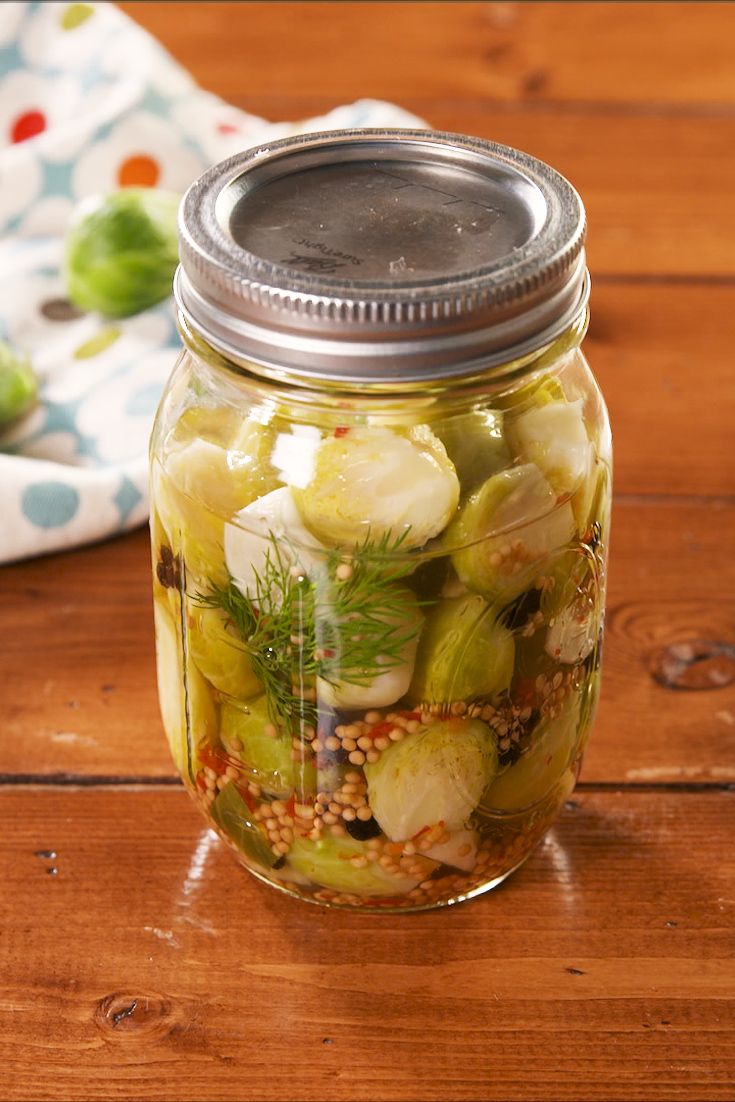
Image source: hips.hearstapps.com
- Unopened Jars: Properly sealed and processed vinegar-based pickles can last up to 1 year when stored in a cool, dark place such as a pantry or cupboard. Make sure the seal is tight and the lid doesn’t pop when pressed.
- Opened Jars: Once opened, pickles should be refrigerated immediately and consumed within 4 to 8 weeks for best quality. Always use clean utensils to avoid contamination.
- Warning Signs of Spoilage:
- Cloudy or foamy brine (not always dangerous, but could signal fermentation or spoilage)
- Unpleasant or sour odor (other than the expected vinegar smell)
- Bulging lids, leaking, or mold growth on the surface or under the lid
When in doubt, throw it out. Spoiled pickles can pose health risks due to harmful bacteria.
Where Can I Sell Pickles in the USA?

Image source: static.wixstatic.com
The places where you can sell pickles in the USA depend on your local laws, license type, and whether you’re registered as a home-based or commercial food business. Below are the most common legal sales channels:
- Local Farmers Markets
Ideal for new businesses. Most states allow cottage food operators to sell pickles directly to customers here, as long as labeling rules and cottage food laws are followed. - Food Festivals and Community Events
Great for exposure and feedback. Some events require a temporary food vendor permit or liability insurance, so check with organizers in advance. - Direct-from-Home Sales
Many states allow you to take orders and sell pickles directly from your home, especially if you're operating under cottage food laws. Always confirm zoning rules in your area. - Online Sales (State-Dependent)
Some states let you sell food products through platforms like Etsy or your own website, but others restrict or ban it under cottage food regulations. Online sales may also require special packaging and FDA registration if shipping out of state. - Boutique Grocery Stores or Gift Shops
To sell wholesale, you’ll likely need to upgrade to a commercial kitchen, meet FDA standards, and provide proof of liability insurance. This route is best for scaling after you've validated your product.
Tip: No matter where you sell, always confirm whether your state requires additional labeling, pH testing (for acidified pickles), or business insurance.
Can I Sell Pickles on Etsy or Amazon?

Image source: vebkafoods.com
Yes, you can sell pickles on platforms like Etsy and Amazon, but only if you meet all legal and safety requirements. These marketplaces have strict rules when it comes to food products—especially those in jars or glass packaging.
Etsy is ideal for small-batch, handmade pickles with a creative or artisan brand. It’s great for testing new flavors and connecting with customers who value homemade goods.
Amazon is better suited for higher-volume sellers who want to scale and reach a broader audience. However, it typically requires more investment in inventory, compliance, and fulfillment.
To legally and safely sell pickles on these platforms, you must have:
- A registered food business license (according to your state’s requirements)
- Compliant packaging that prevents leaks or breakage during shipping
- FDA-approved labeling with ingredient lists, weight, and allergy information
- (If applicable) Proof that your pickles meet acidified food safety guidelines
Before listing your product, always check the platform’s latest policies under their “Handmade Food” (Etsy) or “Grocery & Gourmet” (Amazon) seller guidelines. Also, confirm your state allows online sales under cottage food or commercial rules.
Top Platforms for Selling Pickles Online in the USA

Image source: www.internetsearchinc.com
Selling pickles online can help you grow your brand beyond local markets. Here’s a comparison of the top U.S.-based platforms in 2025 for different business goals—from handmade sales to wholesale distribution:
|
Platform |
Best For |
Fees |
Requirements |
|
Etsy |
Small-batch, handmade jars |
6.5% transaction fee + listing fee |
Food-safe packaging, compliant labeling, U.S. seller account |
|
Shopify |
Custom brand website |
$29/month + ~2.9% per transaction |
Business license, integrated payment system |
|
FarmersWeb |
Wholesale to stores & restaurants |
Monthly subscription (starting ~$40) |
USDA/FDA safety info, bulk order fulfillment |
Platform Highlights:
- Etsy is perfect for hobbyists or small food startups selling unique or gift-ready pickles. Great for seasonal or artisanal batches.
- Shopify is ideal if you want your own branded store with full control over design, payments, and inventory.
- FarmersWeb connects food producers with restaurants, grocers, and co-ops. Best for those who can fulfill wholesale or B2B orders regularly.
Source: Updated from eCommerce Platform Guides & Seller Reports (2024–2025)
How Profitable Is a Pickle Business?

Image source: i0.wp.com/blog.bosswallah.com/
A pickle business can be quite profitable, especially when managed efficiently. On average, it costs around $2 to produce a single jar, including ingredients, packaging, and labeling. These jars can often be sold for $6 to $10 at farmers markets, online shops, or local stores—giving you a gross profit margin of 200–400%. With consistent local sales and smart marketing, small pickle businesses commonly earn $800 to $2,000 per month in revenue. As you grow and reduce costs by buying in bulk, profits can improve even more. Expanding into wholesale partnerships, gift boxes, or subscription plans can push your monthly income well beyond that figure, especially during holiday seasons or food festivals.
Average Monthly Revenue for Small Pickle Businesses in the USA
|
Sales Channel |
Typical Monthly Earnings (USD) |
|
Farmers Markets |
$800 – $2,500 |
|
Online Sales (Etsy, Shopify) |
$500 – $1,800 |
|
Retail & Wholesale |
$1,000 – $3,500 |
Source: U.S. Home-Based Food Business Survey & Cottage Industry Reports (2024–2025)
Explanation:
These numbers reflect estimated earnings based on surveyed small-scale pickle producers across multiple U.S. states. Farmers markets typically offer strong weekend sales, especially during spring and summer. Online sales vary based on product reviews and social media marketing. Retail and wholesale partnerships yield higher but more stable income, especially for businesses that scale beyond home production.
How to Market Your Pickle Brand

Image source: d3jbu7vaxvlagf.cloudfront.net
Marketing your pickle brand is about more than just selling jars—it’s about creating a story your customers connect with. Start by choosing a brand name that reflects your style, whether it’s fun, nostalgic, gourmet, or quirky. A strong, simple logo helps people recognize your product at a glance.
Use social media platforms like Instagram, Facebook, and TikTok to showcase your pickles through high-quality photos and short videos. Show behind-the-scenes content such as pickling day, packaging, or market stalls—it helps build trust and personality.
Encourage customer engagement by:
- Asking buyers to post reviews or tag your brand in photos
- Running small giveaways or “name the new flavor” contests
- Sharing your origin story—like using a family recipe or starting with just one jar
Finally, consider printed marketing tools like stickers, recipe cards, or thank-you notes in every jar you sell. These small touches turn first-time buyers into repeat customers and brand advocates.
Food Photography Tips for Selling Online

Image source: i.pinimg.com
High-quality photos can make a huge difference when selling pickles online. Great visuals help build trust, showcase product freshness, and make your brand stand out. Here are some proven tips to boost your online presence:
- Use Natural Lighting: Shoot near a window during the day to capture soft, even light. Avoid harsh indoor lighting or flash, which can distort colors.
- Include Raw Ingredients: Place fresh cucumbers, spices, herbs, and vinegar around your product to tell a story and highlight authenticity.
- Choose a Simple, Clean Background: Use neutral surfaces like wooden boards, white tabletops, or textured fabric to keep the focus on the product.
- Show the Product in Use: Lifestyle shots of people opening jars, adding pickles to meals, or gifting jars add a human touch and emotional appeal.
- Use Consistent Styling Across Photos: Stick to a visual theme—same lighting, font style (if using text), and layout—to create a recognizable brand identity.
Should I Start with Small Batches or Go Big?
Image source: encrypted-tbn0.gstatic.com
It’s best to start small. This approach helps you test your pickle recipes, understand what customers like, and experiment with pricing and packaging without risking too much money upfront. Starting small also allows you to gather real customer feedback at farmers markets or local fairs, which can guide you in improving your product.
Once you’ve found a flavor or product that consistently sells well, you can reinvest your profits into upgrading your equipment, improving your branding, or expanding your production to meet higher demand. This gradual growth approach reduces risk and increases your chances of long-term success.
Common Mistakes to Avoid in the Pickle Business
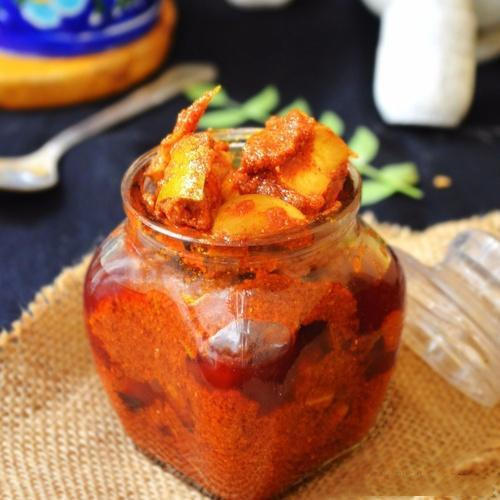
Image source: tiimg.tistatic.com
Starting a pickle business is exciting, but skipping important steps can lead to big problems. Here are the most common mistakes new sellers make—and how to avoid them:
- Ignoring Your State’s Legal Requirements
Every state has different rules for home-based food businesses. Not understanding cottage food laws, required permits, or zoning regulations can lead to fines or being shut down. Always contact your local health department before selling. - Using Untested or Unsafe Recipes
Pickling involves food safety risks. If your recipe hasn’t been tested for acidity or shelf stability, it could lead to spoilage—or worse, foodborne illness. Use only trusted recipes from sources like the USDA or Ball®. - Inaccurate or Missing Labels
Your labels must clearly show ingredients, net weight, allergen info, your business name, and required statements like “Made in a home kitchen.” Missing any of these can lead to legal trouble or confused customers. - Overproducing Without Having Sales Channels
Making too many jars without knowing how or where to sell them often leads to waste and financial loss. Start small, track demand, and grow only when sales are consistent. - Not Having Product Liability Insurance or a Backup Plan
Accidents, spoiled batches, or customer complaints can happen. Having insurance protects you, and a backup supply plan helps keep your business running if anything goes wrong.
Getting Started Checklist for Your Pickle Business

Image source: i.pinimg.com
- Research Your State’s Cottage Food Laws
Start by visiting your state’s official health or agriculture website. These laws determine what types of pickles you can legally make and sell from home. - Get a Food Handler’s Permit (If Required)
Many states require you to complete a simple food safety course, especially if you plan to sell at public markets. It’s affordable and often available online. - Gather Basic Supplies
Purchase essential items like glass jars, vinegar (at least 5% acidity), pickling spices, fresh produce, and safe labeling materials. - Develop and Test Your Recipe
Use trusted, USDA-approved recipes to ensure safety and flavor. Test small batches first and get honest feedback from friends or neighbors. - Apply to Local Farmers Markets
Check the application deadlines, booth fees, and vendor requirements for nearby farmers markets or food fairs. - Create a Brand Identity
Choose a memorable business name, design a simple logo, and think about your story—what makes your pickles special? - Calculate Pricing for Profit
Factor in ingredient costs, packaging, time, and market fees. Most successful sellers aim for at least a 200% markup per jar. - Start Small and Gather Feedback
Begin with 20–30 jars at your first market or event. Track which flavors sell best and ask customers what they like (or don’t).
Mini Pickle Business Plan (Free Template)

Image source: i.pinimg.com
|
Section |
Example Entry |
|
Product Offering |
Classic Garlic Dill Pickles, Spicy Jalapeño Pickles, Sweet & Tangy Relish |
|
Target Market |
Health-conscious adults, gourmet food lovers, and local farmers market shoppers |
|
Startup Budget |
$850 (covers jars, ingredients, licenses, labels, basic marketing materials) |
|
Marketing Channels |
Instagram, Facebook, Local Food Events, Product Sampling Booths |
|
Monthly Sales Goal |
$1,200 (based on selling 150 jars/month at $8 each) |
Why This Plan Works:
- Realistic pricing & goals: A $1,200 monthly goal is achievable for a part-time business selling 5 jars a day.
- Specific niche targeting: Health-focused and gourmet trends are strong in 2025.
- Multiple channels: Promotes in-person and digital reach to attract different buyer types.
Real Success Stories of U.S. Pickle Businesses

Image source: i.pinimg.com
Starting small doesn’t mean thinking small—and these real-life pickle brands prove it. Rick’s Picks, based in New York City, began in local Brooklyn markets in the early 2000s with a focus on all-natural ingredients and bold flavor combinations. Their signature product, Phat Beets (a spiced pickled beet), helped them stand out in a crowded field. By investing in eye-catching packaging, great storytelling, and securing retail distribution deals, Rick’s Picks grew from a farmers market favorite into a nationally distributed brand sold in Whole Foods and specialty stores.
Another example is Pacific Pickle Works from Santa Barbara, California. They launched in 2010 with handcrafted pickles made from locally sourced produce. Their spicy Jalabeaños (jalapeño pickled green beans) quickly gained popularity, and the brand expanded into cocktail garnishes and fermented products. With a commitment to clean labels and bold flavors, they now ship nationwide and supply dozens of stores across the U.S.
These success stories show that with a high-quality product, a clear brand identity, and smart marketing, a small pickle business can scale beyond its local roots.
Can I Do Pickle Business in USA Without a Lot of Money?
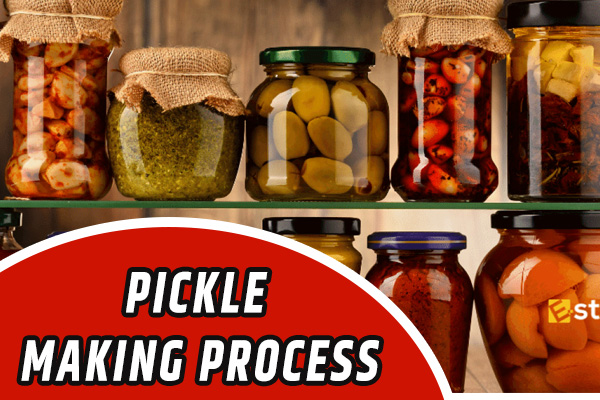
Image source: www.udyami.org.in
Yes, starting a pickle business in the USA on a small budget is possible. With as little as $500 to $1,000, you can purchase essential supplies like jars, vinegar, spices, and labels, as well as cover basic permits and registration fees. Many small food businesses successfully launch from home under cottage food laws, which reduce the need for expensive commercial kitchen rentals. Begin by understanding your state’s legal requirements, following safe food practices, and testing your product at local markets. Start with small batches, get feedback from your first customers, and reinvest your early profits into growing your business step by step.
Read More: If you're exploring artisanal or gourmet food ideas beyond pickles, you might enjoy learning what makes classic European foods stand out. Check out our guide on Traditional French Breakfast Foods: A Complete Guide to Classic Morning Delights.
Conclusion
If you’ve been wondering “can I do pickle business in USA,” the simple answer is yes—absolutely. With the right preparation, legal knowledge, and safety practices, starting a pickle business can be a low-cost, low-risk opportunity to turn your passion into profit. Begin by researching your state’s cottage food laws, registering for the necessary permits, and creating well-labeled, high-quality products. Whether you're selling at farmers markets or online, focus on building a strong brand and listening to customer feedback. Step by step, you can grow a small venture into a sustainable business doing what you love—one pickle jar at a time.
FAQs
What permits do I need to start a pickle business in the USA?
Most states require a cottage food permit, food handler certificate, and basic business registration. Rules vary, so check your local health department.
Can I do pickle business in USA from home?
Yes, you can in most states under cottage food laws, especially if you make vinegar-based pickles. Fermented pickles may need stricter approvals.
Do I need FDA approval to sell pickles?
Only if you're selling across state lines or online nationwide. Otherwise, cottage food laws usually apply for local sales.
How much does it cost to start a pickle business?
Anywhere from $500 to $1,500 for a home setup. Larger commercial operations may cost $5,000 to $10,000 depending on scale.
Can I sell pickles online legally?
Yes, but only if your state allows it. Online sales often require special labeling, packaging, and sometimes FDA compliance.

 Selina Smith
Selina Smith 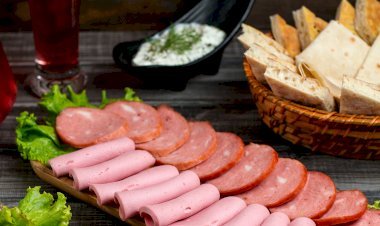
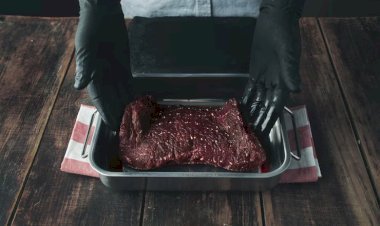



![Greens Cheesecake Mix Review & Recipe Guide [2025]: Easy, Velvety & No-Bake](https://statesidemagazine.com/uploads/images/2025/06/image_380x226_68498c4448165.jpg)









